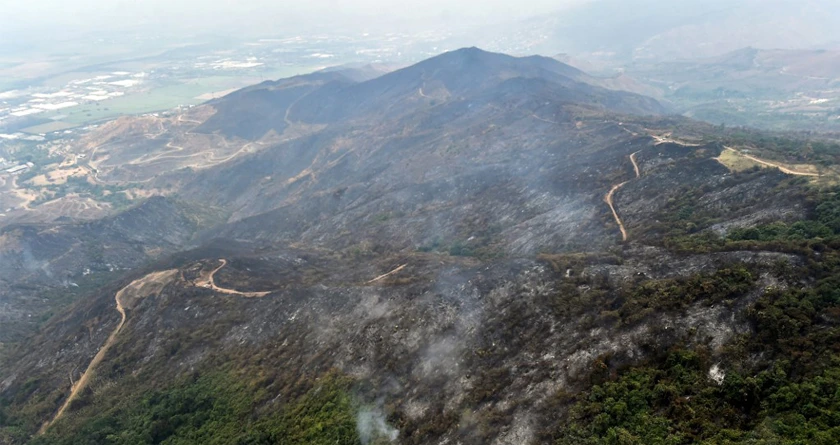
Since The Year 2010, Amazon Basin of Brazil Released More CO2 Gas Than It Has Absorbed, Says A Study
Amazon Basin has given out more carbon dioxide than it has actually absorbed, reveals the researchers…learn more…
Tuesday, 4th May 2021
A recent study conducted on the Amazon Basin of Brazil showed that the densely forested basin has released about 20% more CO2 or Carbon Dioxide Gas into the surrounding atmosphere across the past decade than it has actually absorbed. The findings of the study implied that humanity cannot rely on this largest tropical forest of the world any longer for assisting it by absorbing the manmade carbon pollutants from the air and leaving the air clean and breathable.
From the year 2010 through the year 2019, the Amazon basin of Brazil released 16.6 billion tonnes of CO2 gas into the air, while gulping down meagre13.9 billion tonnes only, reported the researchers on this Thursday through a paper published in the journal titled ‘Nature Climate Change.
If the Amazon Basin were to turn out to be a source or birth seat rather than a "sink" for the CO2 gas, dealing with the climate crisis, researchers believe, would be pretty harder.
The study analyzed deeply the volume of the CO2 gas absorbed as well as stored within the basin as the forest therein expands, versus the net amounts of the gas left back into the air as it has possibly been combusted or has been destroyed.
"We half-expected it, but it is the first time that we have figures showing that the Brazilian Amazon has flipped, and is now a net emitter," said one of the co-authors of the study, Jean-Pierre Wigneron, who is a scientist at the National Institute for Agronomic Research (INRA) in France.
"We don't know at what point the changeover could become irreversible," he told the AFP during an interview.
The study further revealed that deforestation – through forest fires and clear-cutting – increased by about four-fold in the year 2019 when compared to the last two years, from nearly one million hectares (2.5 million acres) to nearly 3.9 million hectares; i.e. an area of about the size of Netherlands.
"Brazil saw a sharp decline in the application of environmental protection policies after the change of government in 2019," said the INRA in a statement.
Jair Bolsonaro, the President of Brazil was sworn at the office on the 1st of January, 2019.
The terrestrial ecosystems stretching across the globe have been one of the prominent allies as our world struggles to check the emissions of CO2, which scaled 40 billion tonnes in the year 2019.
Across the last half-century, the soils and plants have absorbed most consistently nearly 30% of the CO2 emissions, even when such emissions grew by about 50% across that period.
Oceans to have helped, absorbing over 20%.
The News Talkie Bureau
Source:
NDTV











